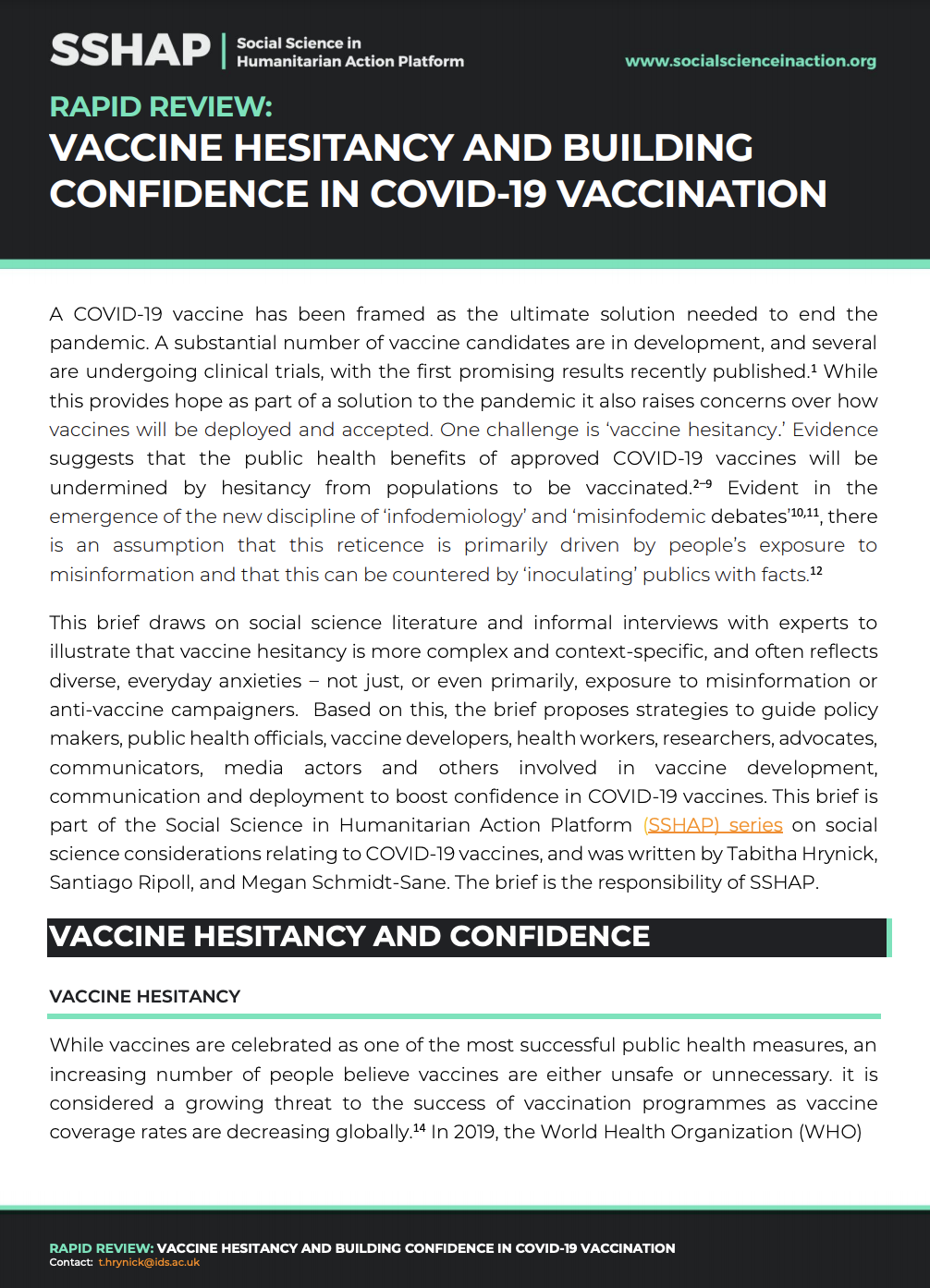Rapid Review: Vaccine Hesitancy and Building Confidence in COVID-19 Vaccination
Description
COVID-19 vaccine has been framed as the ultimate solution needed to end the pandemic. A substantial number of vaccine candidates are in development, and several are undergoing clinical trials, with the first promising results recently published. While this provides hope as part of a solution to the pandemic it also raises concerns over how vaccines will be deployed and accepted. One challenge is ‘vaccine hesitancy.’ Evidence suggests that the public health benefits of approved COVID-19 vaccines will be undermined by hesitancy from populations to be vaccinated. Evident in the emergence of the new discipline of ‘infodemiology’ and ‘misinfodemic debates’, there is an assumption that this reticence is primarily driven by people’s exposure to misinformation and that this can be countered by ‘inoculating’ publics with facts.
This brief draws on social science literature and informal interviews with experts to illustrate that vaccine hesitancy is more complex and context-specific, and often reflects diverse, everyday anxieties – not just, or even primarily, exposure to misinformation or anti-vaccine campaigners. Based on this, the brief proposes strategies to guide policymakers, public health officials, vaccine developers, health workers, researchers, advocates, communicators, media actors and others involved in vaccine development, communication and deployment to boost confidence in COVID-19 vaccines. This brief is part of the Social Science in Humanitarian Action Platform (SSHAP) series on social science considerations relating to COVID-19 vaccines.
Additional languages

DETAILS
Publication
Authors
Emergency
Scope
Language
Region
Keywords

